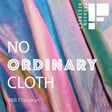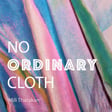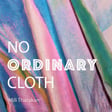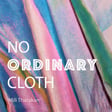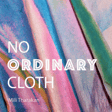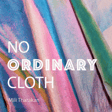
🌱 Ep 14. Farm to Fibre: Spinning Yarn from Potatoes (x Fashion District)
Special episode: No Ordinary Cloth x Fashion District
In this episode of the No Ordinary Cloth podcast, we chat with David Prior Hope (CTO) and Idan Gal-Shohet (CEO), founders of Fibe, a pioneering company converting potato harvest waste into sustainable cotton-like textile fibres.
Fibe was born out of a final year Masters project at Imperial College, London, aiming to turn agricultural waste into usable materials. Their innovative approach focuses on creating fibres from potato stems, which mimic cotton's feel and function while being more sustainable and cost-effective.
Here, they share about collaborating with agricultural institutes and industry giants like Grimme and McCain, to build a promising startup in just two years that has secured funding from the likes of Patagonia’s Tin Shed Ventures, emphasising their impactful vision to develop a solution that can truly impact the textile industry. They enthusiastically share about their feedstock agnostic technology and the power of storytelling in building a startup.
It wasn't an easy journey, they reflect on their early days working out of a shipping container and how thrilled they were to get just GBP3000 to get their university project off the ground.
The conversation is inspiring and reflects their ambitions for the company to scale up by 2027, and integrate their fibres into existing textile manufacturing processes seamlessly. David and Idan encourage brands and stakeholders to support early-stage innovations, highlighting the transformative potential of such collaborations.
Listen to them share about how they overcame challenges faced in finding funding to continue their R&D and scale their technology, their partnerships with potato farmers and fashion brands, the secret powers of being a student and how they manage a work-life balance while building an early stage startup.
Fibe is the winner of the Fashion District Manufacturing Futures Award for Innovation in 2024.
Get ready to gain a whole new level of respect for potatoes after this episode!
This is the second in a series of 6 episodes in collaboration with Fashion District, who are creating a hub for fashion innovation in east London. They connect fashion, technology, business and education to provide an ecosystem of support for fashion and textile startups that includes innovation networks, affordable space, business support and investment.
Connect with Fibe: website I Instagram I Linkedin
Connect with Fashion District: website I Instagram
Connect with Mili Tharakan: website I Instagram I Linkedin I Buy me a coffee
Cover art: Photo by Siora, Photography on Unsplash
Music: Inspired Ambient, Orchestraman
